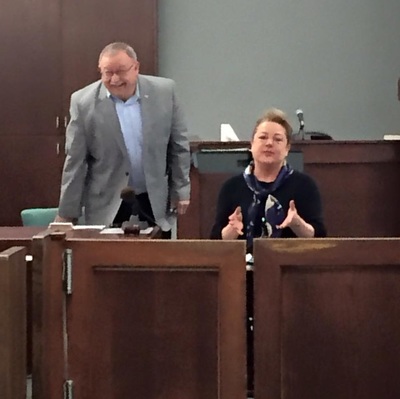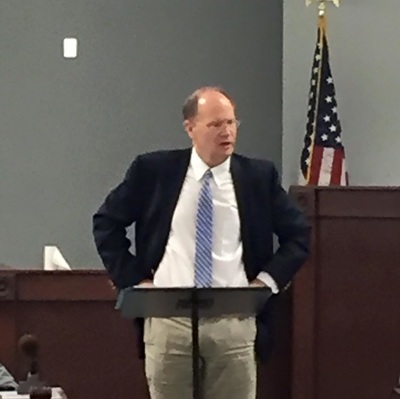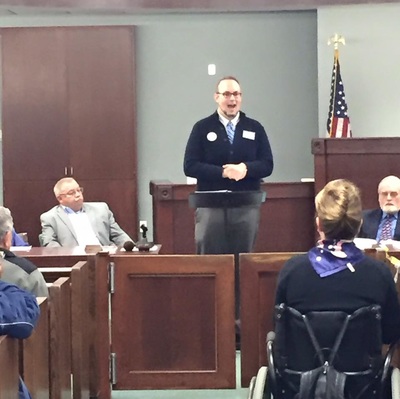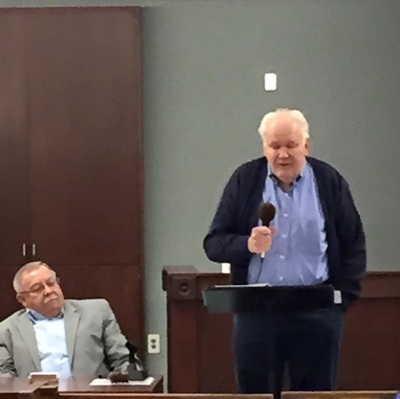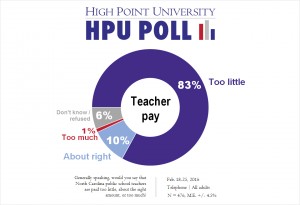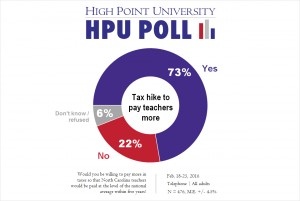Charles Meeker, candidate for NC Dept of Labor, spoke about workplace safety, fair classification for employees and independent contractors, protection for workers from discrimination and the desperate need for Medicaid expansion in NC. Let's out the self-promotion Queen, Cherie Berry, come Nov and vote in this impressive former mayor of Raleigh!
Michael Lentz, candidate for NC House, spoke about education, Medicaid expansion and environmental protections from Duke Power. We must protect our state from the corporate interests that are destroying our environment and green industries.
Connie Cox, candidate for Register of Deeds, spoke about modernizing the office - not just with technology - but with an attitude to do MORE than the status quo. Wilkes should expect more creativity and follow-through from our elected officials.
TD Carter, legendary local Democrat and former County Commissioner, gave a rousing talk encouraging us to keep trying to work with the other side to make progress. "It's tough times, but we've had tough times before."
Larry Pendry, Chair of the Wilkes Democratic Party challenged each and every one of us to work hard to elect our party candidates. "On November 9th, will you be able to wake up and say you did all you could?"

